Graham Reid | | 2 min read
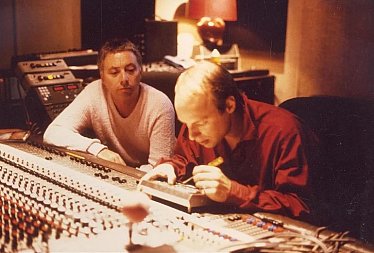
Following his wonderful Music for Films and After the Heat (with Moebius and Roedelius of Cluster), this collaboration with pianist Harold Budd continued Eno's exploration of ambient music after the first volume Music for Airports and his work with Budd on The Pavilion of Dreams two years previous.
Pulled from the shelves at random for this on-going column, my copy is in excellent condition … largely because it has been rarely played.
Odd that, given it probably cost a pretty penny . . . or many.
At this time albums on Editions EG (as this was) and Eno's own Obscure label were impossible to get in New Zealand so – as for many ECM albums – I posted off some credit note or whatever to an address in the UK on faith and usually a review in NME or Melody Maker.
It is therefore my good fortune to have many original copies of albums by Eno, Cluster, Budd, trumpeter Jon Hassell, the Laraaji album on Obscure and other such treasures.
But around the same time the Windham Hill label out of California was releasing its own quasi-ambient albums by the likes of pianist George Winston (some nice stuff) and acoustic guitarist Alex Di Grassi (never quite got him).
This was the dawn of New Age music, the albums sold through health stores and New Age bookstores . . . and largely reviled by serious music listeners.
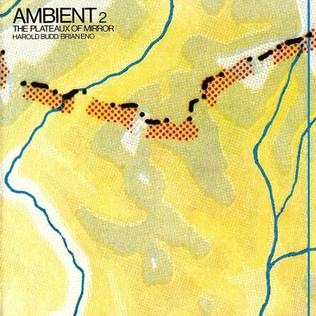 It was nice, inoffensive stuff and I'm sure made its way to those with healing crystals and massage parlours.
It was nice, inoffensive stuff and I'm sure made its way to those with healing crystals and massage parlours.
Eno's ambient project was something rather different – “as ignorable as it is interesting” he said – although some read it as Muzak (elevator music) more than something akin to Erik Satie which was some kind of reference point.
But there was also the matter of political timing: as David Sheppard observed in his 2008 Eno biography On Some Faraway Beach, reviewer Ian Penman the NME, then in the anti-Thatcher post-punk era, dismissed the album as escapist and a bourgeois indulgence.
Clearly I hadn't read that review when I ordered it. But I liked it when it arrived and played it more than a few times.
The problem with the Plateaux of Mirrors album -- then and now -- is that quietly engaging and beautifully produced as it is, it does rather disappear in the ears and at many points fails to reach that “interesting” aspect of Eno's definition.
It is ambient in that it is just there, pleasantly so, but lacks some of the engaging qualities of Music for Films and even the spacious elegance of Music For Airports.
It just errs a little to close to the emotional emptiness of most New Age music.
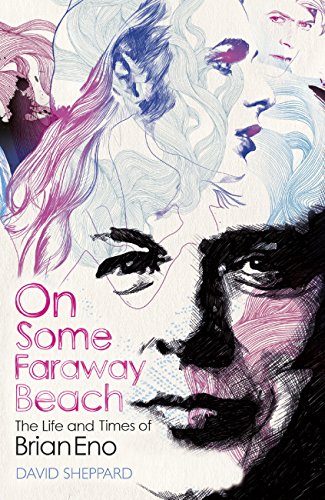 Yes, we get the cleverness of how Eno has manipulated the sound (and Budd too) but its notable that the next one in the series was somewhat more forceful (Day of Radiance by zither player Laraaji) and Eno quickly embarked on his Fourth World series with trumpeter Jon Hassell (the beguiling Possible Musics and Dream Theory in Malaya).
Yes, we get the cleverness of how Eno has manipulated the sound (and Budd too) but its notable that the next one in the series was somewhat more forceful (Day of Radiance by zither player Laraaji) and Eno quickly embarked on his Fourth World series with trumpeter Jon Hassell (the beguiling Possible Musics and Dream Theory in Malaya).
Eno was on a path however and with a year created My Life in the Bush of Ghosts with David Byrne (not ambient in the slightest) and the sublime Apollo; Atmospheres and Soundtracks which pulled together ambience, atmospherics and seductive melodies.
But Plateaux of Mirror?
I enjoyed hearing it again after many decades, but by the end I didn't remember much.
Although maybe that was also the point?
“Ignorable”, right?
.
You can hear this album at Spotify here. There is a lot about Eno, past and present, at Elsewhere starting here.
Harold Budd died in December 2020. He was 84.
.
Elsewhere occasionally revisits albums -- classics sometimes, but more often oddities or overlooked albums by major artists -- and you can find a number of them starting here

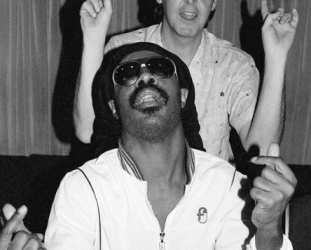
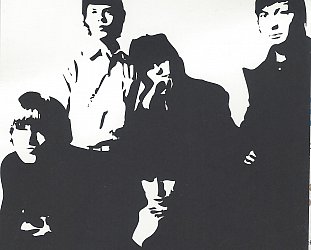

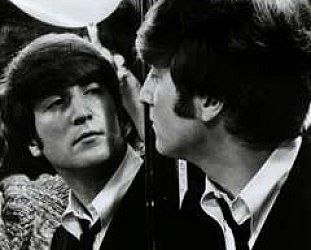
post a comment